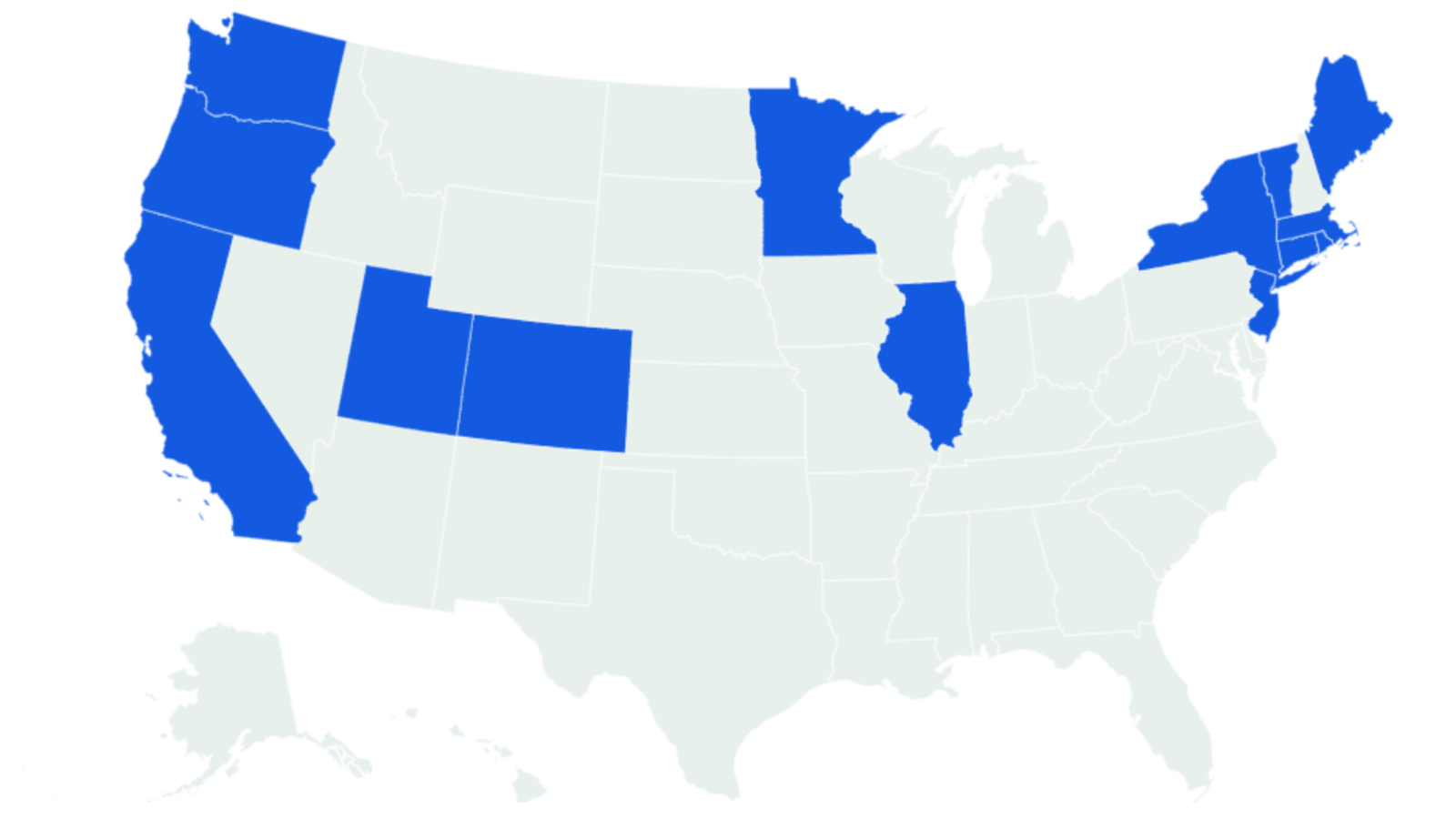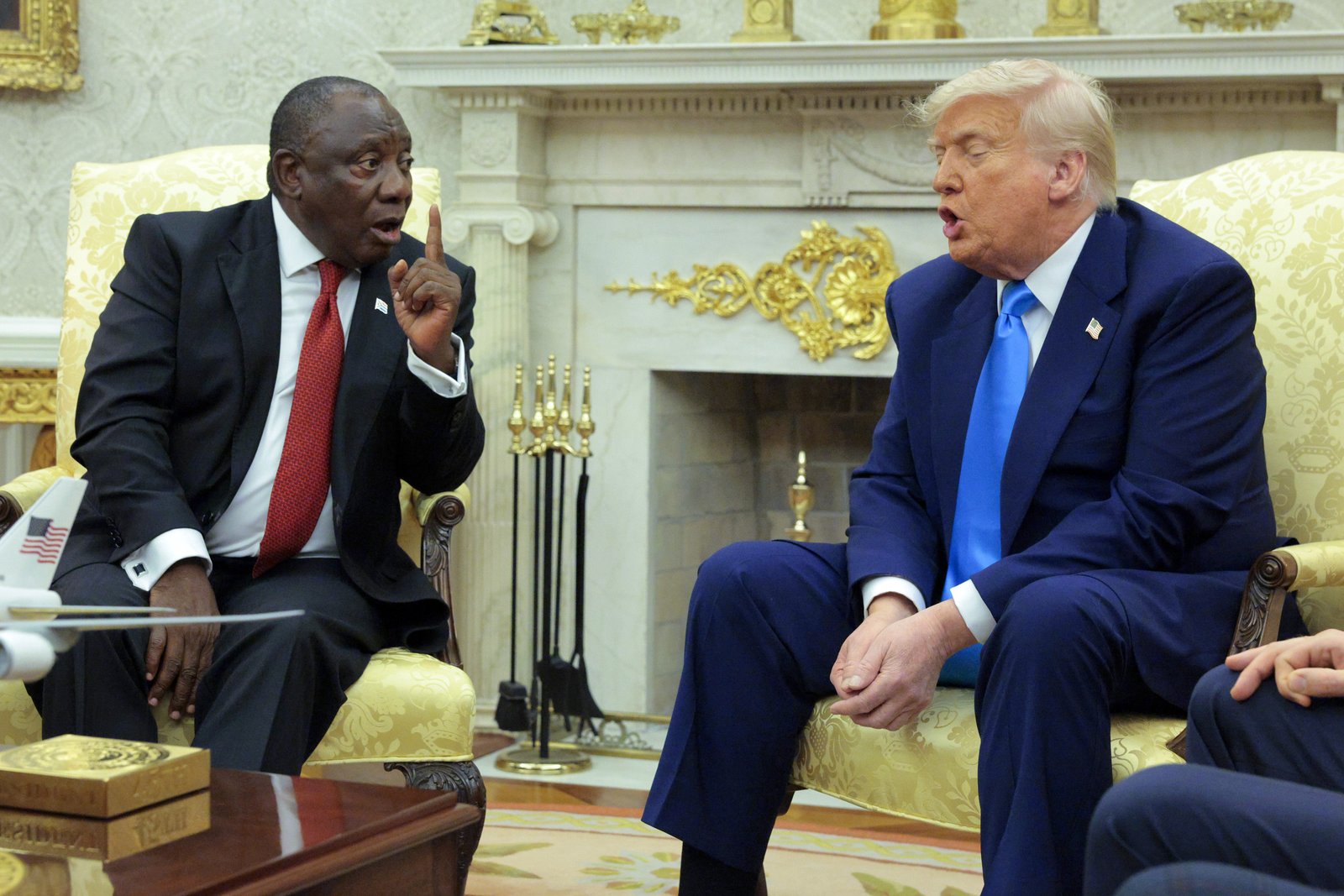Part of President Donald Trump’s budget legislation, the “Big Beautiful Bill,” will seek to punish the 14 states that currently offer health coverage to people in the U.S. regardless of immigration status, including undocumented migrants.
The 14 states, most of which are Democratic-led, would see the federal Medicaid matching rate for the Affordable Care Act (ACA) expansion in their states cut from 90 percent to 80 percent, ramping up how much they would have to pay to run their service.
Why It Matters
Immigrants without legal status typically do not qualify for federal benefits, however, more than a dozen states offer various forms of health coverage to undocumented migrants.
While advocates of such services argue these programs promote public health, reduce long-term costs, and align with moral obligations to care for vulnerable populations, critics contend that such efforts strain budgets and could incentivize illegal immigration.
What To Know
The 14 states that currently provide health coverage to undocumented migrants are California, New York, Illinois, Washington, New Jersey, Oregon, Massachusetts, Minnesota, Colorado, Connecticut, Utah, Rhode Island, Maine and Vermont. Washington, D.C., does likewise.
California, Minnesota, Massachusetts, Maine, Colorado, and Oregon currently provide health insurance for adults, regardless of immigration status, while Illinois and New York provide coverage specifically to older adults, over 65. In New Jersey, children under 19 are covered.
In Connecticut, coverage is available for children under 15, but a February proposal sought to expand coverage to undocumented migrants aged under 26 and above 65.
In Utah, there is emergency care coverage available for undocumented migrants, and some health care coverage available for children.
Undocumented migrants that are pregnant or children in Rhode Island are also eligible for health coverage.
The change to the federal match for the ACA Medicaid population in these states would mean that each state has to cover the cost of Medicaid by a greater amount—in total, it would shift $92 billion in costs from the federal government to states.
California would be the most heavily impacted state, seeing an increase in spending of $30 billion, according to KFF, while Vermont would see the smallest change, an increase of $300 million in spending.
Some states, including Utah and Illinois, could see major Medicaid enrollment declines as both have “trigger” laws in place, meaning that the ACA Medicaid expansion would automatically end if the federal match rate drops.
KFF predicted that 78,000 people would lose coverage in Utah, while 840,000 would lose coverage in Illinois by the 2034 financial year.
Illinois Governor JB Pritzker also recently proposed to cut the four-year-old program that provides health coverage for undocumented migrants as part of his 2025 fiscal plan.
California is also eyeing up similar legislation, as Governor Gavin Newsom announced earlier this month that he was going to help reduce a $12 billion deficit by freezing health coverage for immigrants living in the state without legal status.
If states decide to eliminate their state-funded coverage for immigrants to avoid the penalty, more than 1.9 million could lose their health coverage, according to KFF data.
What People Are Saying
Centers for Medicare and Medicaid Services head Dr. Mehmet Oz told Fox News’s Sunday Morning Futures: “We do have to support Americans who are most vulnerable. That stated, we have to make the program sustainable. We have to protect it.”
He added: “There’s much we can do as a country. It’s a shared responsibility. We have to do it together. But the buck stops here. We’ve got to clean up the system,” Oz said. “We’re not paying $200 million for housekeeping anymore a year. We’re not going to pay for illegal immigrants in states that are submitting those claims. Why should people living in Mississippi, Texas, or Florida be paying for illegal immigrants getting healthcare in California?”
California State Senator Scott Wiener, said about the “Big, Beautiful Bill,” according to KFF: “We need to stand our ground. California has made a decision that we want universal health care and that we are going to ensure that everyone has access to health care, and that we’re not going to have millions of undocumented people getting their primary care in emergency rooms.”
Utah State Representative Jim Dunnigan said about the “Big, Beautiful Bill,” according to KFF: “We cannot afford, monetary-wise or policy-wise, to see our federal expansion funding cut.”
What Happens Next
Trump’s “Big, Beautiful Bill” narrowly passed the House last week and has now moved to the Senate.











